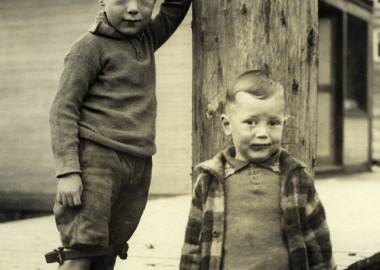
Planning a corporate storytelling workshop? Our suggestion would be to host a story hive. What’s a story hive? It’s a shot of storytelling magic – and you can do it at your company. All you need is willing storytellers – we call them storykeepers at ECHO – and open minds.
Also, probably coffee, but that’s just us.
What Is A Story Hive?
A story hive is an organic-yet-directed storytelling intensive that seeks to disrupt everyday ways of thinking about your brand and company in order to unlock the power of storytelling. It’s not childish. It’s about having an adult conversation about what happens at your company, what it teaches you and how it defines your company’s brand and culture. It also serves as a a supercharged storytelling kickstart that’s rewarding, energizing and often REALLY fun.
Why Would I Want To Have A Story Hive?
There are lots of reasons why a company might want to have a story hive. Corporate storytelling is a flexible tool for many business challenges, including staff transitions, IPOs, onboarding, mergers and company anniversaries. A story hive is your go-to strategy when you want to activate storytelling as a company tool quickly and efficiently. It’s designed to get you unstuck. You know when you’re stuck.
A story hive is your go-to strategy when you want to activate storytelling as a company tool quickly and efficiently. It’s designed to get you unstuck.
We used it to great effect when kickstarting our Rocky Mountaineer project; the compressed timeline, combined with Rocky Mountaineer’s super-busy staff, made it a key success factor in getting the book on track (if you’ll excuse the pun).
How Do I Create A Story Hive?
First, think about your goals. Are you looking for external or internal stories? Who could tell these stories?
Rarely do the storytellers work in marketing or communications. Story hives are about tapping into segments of your company that might go unheard on a day-to-day basis. When you’re thinking about who to bring into the hive, think about where your organizational silos are and how you can disrupt them.
Next, build an atmosphere conducive to a collaborative act of listening. Storytelling requires a listener; the act of excavating your life experience for others requires trust and sense of non-judgmental openness. That’s why we’d suggest that you appoint a few storykeepers who are comfortable in taking a leadership role to tell the first stories. It’ll break the ice and make it easier for those who are not as familiar with each other to get started.
How to get started? Ask questions. Try something like:
- when did you last do something that made you feel like you were meant to be there?
- what is the most amazing thing that has ever happened at work?
- what is the biggest crisis you’ve ever tackled at work? How did your response shape how you feel about the company?
- when did your coworkers last take you past a perceived barrier or obstacle?
- what is one thing that you do every day that demonstrates company values?
As the stories flow, police the room. Don’t allow interruptions. Don’t take things too seriously, but don’t allow anyone to be bullied. Be nice to each other. It’ll help a lot.
(At ECHO, we also strongly recommend providing snacks, but this is optional.)
Appoint one recorder to capture stories. If the storykeepers are comfortable with it, record the session on audio or video. You can also opt to make the process anonymous.
What Happens Next?
After your story hive session, decide who is keeping the stories. If you have a content team, you might decide to have a strategy session to determine next steps. You have collected a whole bunch of stories; it’s now time to think about how you might want to move ahead. We’ve seen clients make books, training videos, websites and apps – all driven by the storytelling process.
We kick off all our projects with a visioning and storytelling session. Story is our secret sauce. We’d love to hear about your story hive experience – or help you host an awesome one. The key to a successful story hive is an open mind – and willingness to talk openly. Great stories are the lifeblood of an organization. Don’t be afraid to be real.




